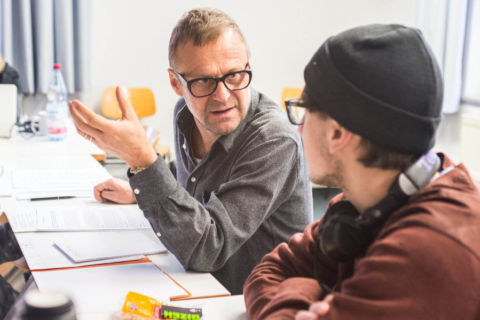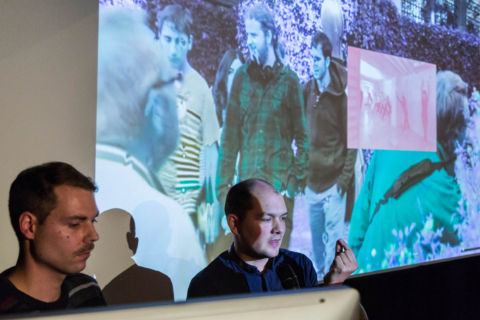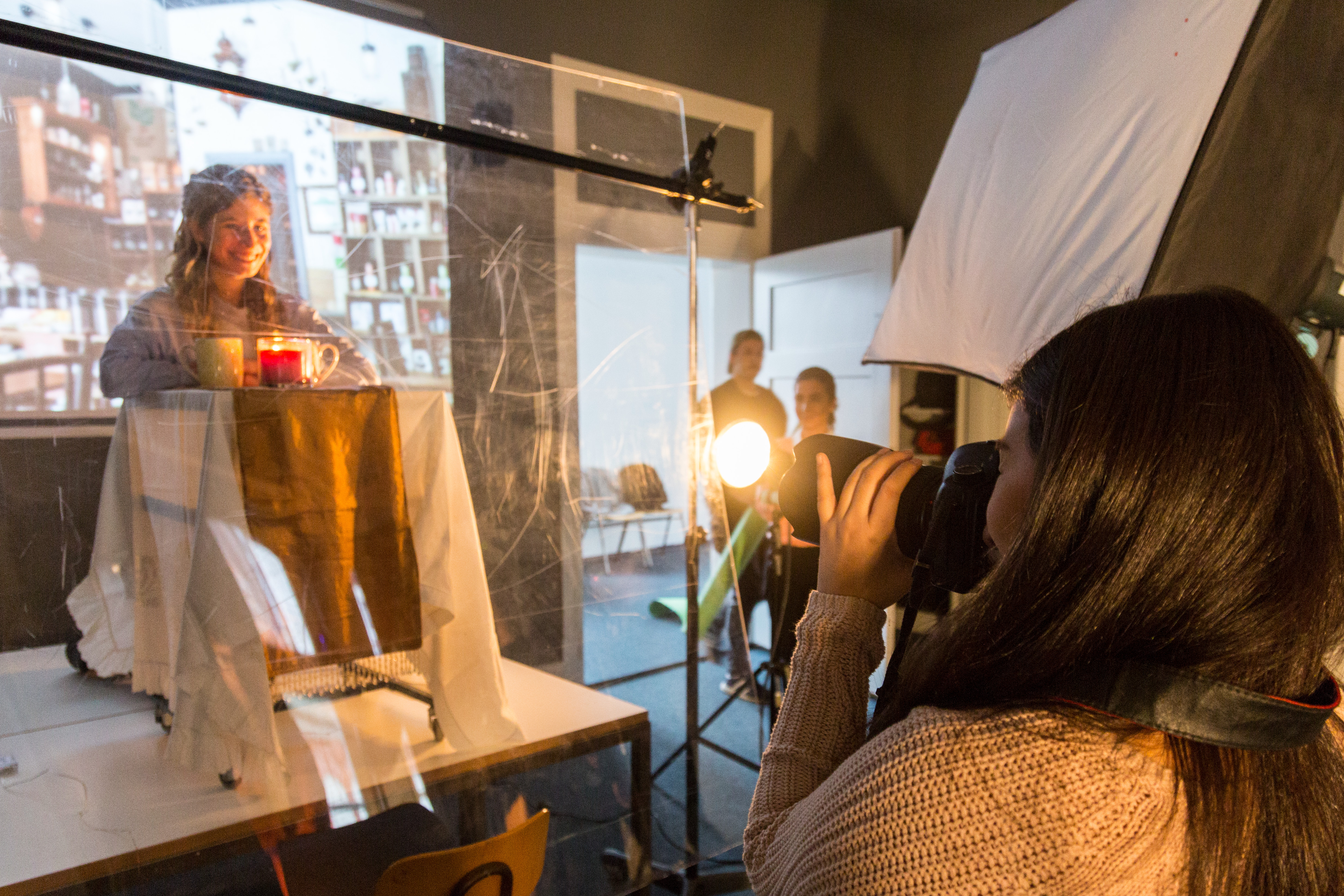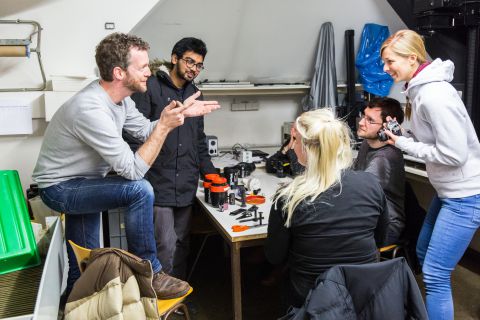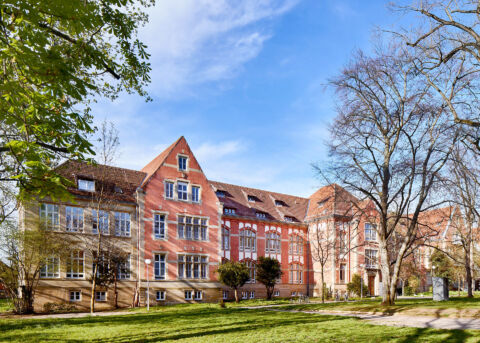
The “Free Academy for Cognition and Design,” as the Merz Akademie was called in 1918, the year it was founded, already sought to integrate intellectual and physical work into a single process.
Today, in many ways, the academy has elevated this maxim to its mission statement. It pursues an integral, reformist-didactic objective and the further development of pedagogy and education based on the reformist pedagogy of Albrecht Leo Merz.
What the founder conceived of as a kind of “general study of design” for the industrial age is being continued today, in the altered cultural, aesthetic, and technological conditions of the so-called information or media age, in the education of designers and authors of print media, moving image media, and electronic media.
The rapid cultural and economic rise in the significance of the media industry goes hand in hand with a raised consciousness about the influence of media on the economy as a whole, on politics, and on society. In order to meet the challenges of the information age, well-informed or technically virtuosic use of media is not enough. In order to understand how much hardware and software do not merely represent some contents, but themselves create cultural meanings, it is necessary to have precise knowledge of the structures and codes that are predefined by machines and programs. Only by reflecting on the possibilities and limits of a medium can alternatives and innovations arise.
A society in which reality is increasingly marked by media requires orientation and guidance from its designers; at the same time, it expects them to communicate targeted and appropriate practical capacities and specific messages, and efficiently and effectively to use and develop the potential of technology. The analysis of contemporary social processes and the reflection on possible developments is the foundation for socially responsible action, and has therefore long been an essential component of how the academy sees itself.
With the Merz Akademies clear interest in the disciplines of the humanities, social, and cultural studies, design, and art, as well technology, the academy positions itself between a classical art academy, a technical college, and a humanities faculty. The academy’s tasks include activities in teaching, research, and further education that facilitate the professional and academic formation and further education of designers and authors in the area of media on a scholarly, artistic, and technological basis.
In 1985, three years after the academy was taken over by Markus Merz, the Merz Akademie was granted state accreditation as a college of higher education [Fachhochschule] by the Ministry for Sciences and Art. The college, administered by the Merz Akademie GmbH as a non-profit organization, was institutionally accredited by the German Council of Science and the Humanities in 2008, which was followed by accreditations for the bachelor’s program “Design, Art and Media” with the Pathways “Film and Video,” “New Media,” and “Visual Communication,” as well as for the master’s degree program “Knowledge Development in Design, Art, and Media.”
